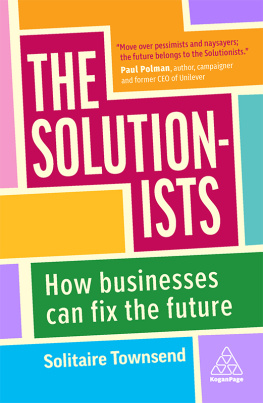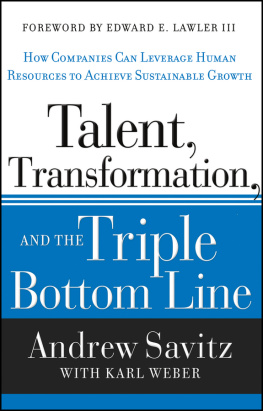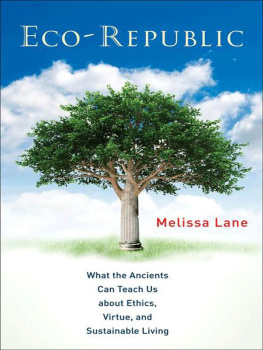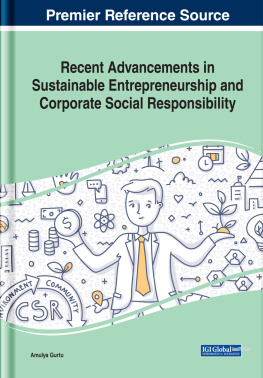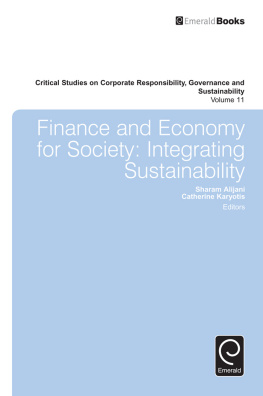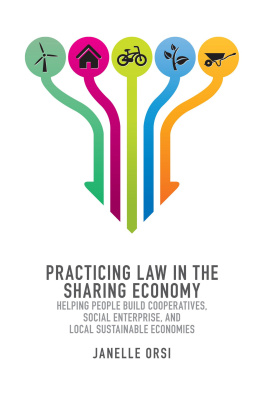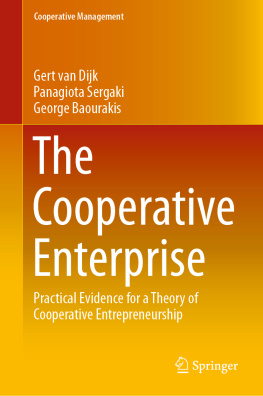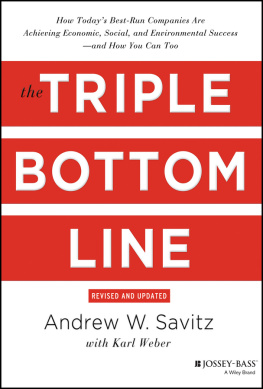PROSPERITY IN THE FOSSIL-FREE ECONOMY
Prosperity in the Fossil-Free Economy
COOPERATIVES AND THE DESIGN OF SUSTAINABLE BUSINESSES
MELISSA K. SCANLAN
Yale
UNIVERSITY PRESS
NEW HAVEN & LONDON
Published with assistance from the foundation established in memory of Amasa Stone Mather of the Class of 1907, Yale College.
Copyright 2021 by Melissa K. Scanlan.
All rights reserved.
This book may not be reproduced, in whole or in part, including illustrations, in any form (beyond that copying permitted by Sections 107 and 108 of the U.S. Copyright Law and except by reviewers for the public press), without written permission from the publishers.
Yale University Press books may be purchased in quantity for educational, business, or promotional use. For information, please e-mail (U.K. office).
Set in Scala and Scala Sans types by Newgen North America.
Printed in the United States of America.
Library of Congress Control Number: 2021930040
ISBN 978-0-300-25399-3 (hardcover : alk. paper)
A catalogue record for this book is available from the British Library.
This paper meets the requirements of ANSI/NISO Z39.481992 (Permanence of Paper).
10 9 8 7 6 5 4 3 2 1
Like planting an acorn to grow into an oak, I wrote this book for todays generations, with aspirations and affection for my loved ones who will be living in 2100 and future generations I will never meet.
CONTENTS
PREFACE
AS WE ENTER THE 2020S, our world is marked by a remarkable global connectivity. We are able to communicate instantly, share information, and understand as an interconnected human community. Unlike at any other time in human history, we have platforms for multiple forms of collaborations globally, nationally, and locally. We have the tools to collectively see what we are doing to our life-support structure and assess the variable material wealth of people across the planet. And what many of us see is that the Earth faces an unprecedented climate emergency, mass extinctions, and disrupted ecological systems, while the wealth gap continues to widen.
Without hiding from the mounting horrors of rising temperatures and inequality, we can also see that we live in an incredibly exciting time of possibility. We have the knowledge, technology, and global connections to create a more just, democratic, and environmentally sustainable world. The massive change that occurred with the industrial revolution is in the process of changing again, and it could be toward a better political and economic system. The direction we ultimately take hangs in the balance as this book goes to press.
Nothing brought this lesson in global interconnectedness and disruption home more forcefully than the novel coronavirus, which emerged in January 2020 in China and rapidly spread throughout the world. People everywhere were forced to stay home, but through technology we were able to stay connected to each other and lessen our fear and isolation. Every country experienced loss of life, unemployment, and abruptly contracted economies. Governments everywhere were figuring out how to respond.
By the end of April 2020, the United States alone had already approved spending $3 trillion to get its economy moving, but by fall it was clear more was needed. The looming uncertainty is whether governments around the world will create economic stimulus programs that tackle the climate emergency. This is an opportunity to jump-start the economy in ways that promote ecological balance and healthy communities. The European Union and South Korea have endorsed passing or strengthening Green New Deals to put people back to work building renewable power generation, making buildings more energy-efficient, and growing diversified, sustainable agriculture.
We stand at a history-making moment. If governments fail to align economic stimulus with mitigating the climate emergency, climate risk and suffering will intensify. Going back to business as usual will mean that companies prioritize existing liabilities, payrolls, and shareholder payouts over investments in long-term sustainability. This will result in more climate-disrupting emissions and a failure to hold down temperature increases. On top of the huge stock market losses experienced during the early pandemic, a failure to transform the economy as we recover will lead to even greater risk of climate-related losses to life and business from flooding, sea-level rise, extreme temperatures, drought, productivity declines, and violent weather.
Moving the world off fossil fuels and powering our system on renewables requires governments to design economic stimulus programs that reject business as usual in our climate-changing emissions. If we also rethink how businesses can be organized to produce broadly shared wealth, we can prosper while we transform. Our choices will involve tradeoffs between the extent and speed of mitigating (reducing) climate change, adapting to disruptions, suffering, and prospering. The more aggressively we mitigate in this decade, the less we will need to adapt, and the less we will suffer. But what if our approach also meant we could prosper? This book explores how we can prosper while mitigating climate disruption, and envision how this intentional evolution will enable us to suffer less and have less need to adapt to extremes.
To prosper in the coming era will involve taking the democratic political experiment to the next level and building a democratic economy: one that is of the people, by the people, and for the people. Such an economy would involve creating businesses that reflect broad-based ownership and participation in decisions by workers, weaving sustainability and deep decarbonization into the core purpose of businesses, improving the communities where business is conducted, and sharing prosperity more equitably across nations, races, and genders. If we keep these goals in mind, the resulting system could be one that is democratic, just, and sustainable.
PROSPERITY IN THE FOSSIL-FREE ECONOMY
Introduction: The Dream from 2035, Looking Back on 2020
THE YEAR 2020 WAS AN INFLECTION point when the world changed dramatically and unexpectedly. A novel coronavirus spread from country to country and sent billions of people into homebound isolation. We buried so many. The virus showed us that no matter where we live or how famous we are, all are connected and vulnerable. It also revealed the disparities in our access to health care, as the poor, people of color, migrants, prisoners, and the elderly suffered the most.
We saw how the free market and individualism led to shortages in tests, protective gear, face masks, medicines, food, and even toilet paper. A few socially oriented companies quickly shifted production from things like snowboards to masks, which they donated to hospitals. Some governments flexed almost forgotten muscles and directed companies to produce ventilators and other essential supplies.
Some people hoarded food and supplies out of fear and a sense of disconnection. Many more started building new relationships among neighbors, volunteered to bring food and medicine to those most at risk, and planted gardens to keep people from going hungry. Nations closed borders, students from kindergarten to graduate school attended classes online, economies ground to a slow crawl, and the ranks of the unemployed swelled (in the first month alone, twenty million Americans lost their jobs). And yet, we remained home and headed off the worst-case scenario. In order to save lives, we slowed ourselves into the worst global economy since the Great Depression of the 1930s.


